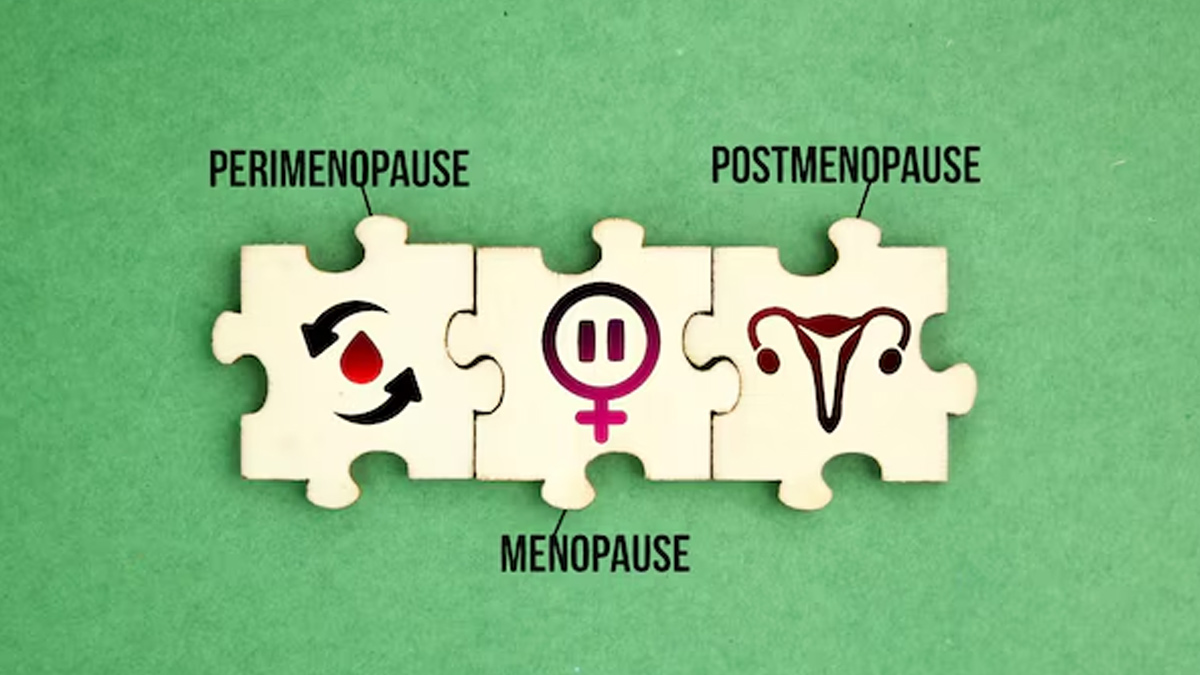
Women's health is influenced by several factors, including hormonal changes, lifestyle, and genes. Of these, menopause is a reproductive milestone that greatly affects overall health and well-being.
Table of Content:-
Menopause has three stages: perimenopause, menopause, and postmenopause. Perimenopause refers to a time of fluctuating hormone levels, in particular a gradual decrease of oestrogen. The body undergoes several changes during this time and can manifest several symptoms, including irregular periods, hot flashes, mood swings, sleep disturbances, and more.
However, women face several other symptoms also during the perimenopausal stage, and Dr Hina Shaikh, Consultant Obstetrics and Gynaecology, Fortis Hiranandani Hospital, Vashi, discusses some of them in an interaction with the OnlyMyHealth team.
Also Read: Why Do Women Experience Heavy Period Clots After 40? Here’s What The Expert Says
What Is Perimenopause?

Perimenopause is a transitional phase that occurs before menopause and starts with milder symptoms. This stage is characterised by a decrease in oestrogen production by the ovaries, leading to fluctuating levels of other hormones like progesterone. While each woman's experience with perimenopause may vary, it usually lasts several years before they enter menopause.
When Does Perimenopause Start?
According to a study published in Clinical Obstetrics and Gynaecology, perimenopause starts with the "Onset of menstrual irregularities and continues until a woman reaches menopause or one year after amenorrhoea has occurred." Amenorrhoea refers to the absence of menstruation.
Dr Shaikh says, "To track perimenopause symptoms, women have to make note of changes occurring around the mid-40s, or in some cases, rarely after the age of 35. It's important to know the inheritance pattern of menopause in the mother, to discuss it with the doctor, and to undergo hormonal tests like serum FSH, serum oestradiol (E2), and other relevant hormonal tests."
"A USG (ultrasound) should be done to assess the status of the endometrial lining and ovaries. These findings should be monitored every year. It is also important to track menstrual irregularities and ensure regular yearly check-ups," she adds.
Also Read: Why Discussing Menopause Is Essential For Women's Health
Unusual Symptoms Of Perimenopause

In addition to the classic signs of perimenopause, including mood changes, hot flashes, and irregular menstruation, some surprising symptoms of perimenopause are tinnitus (ringing in the ears), a burning sensation in the mouth, on-and-off breast pain, and electric sensations throughout the body.
According to Dr Shaikh, perimenopause can cause oral discomforts like the feeling of dry mouth, gum problems leading to inflammation and infections, burning mouth syndrome, and altered taste sometimes.
Moreover, it can also cause skin issues, such as dry skin, darkening of the skin, eczema, rosacea, and hyperpigmentation.
Management Tips For Perimenopause

Dr Shaikh recommends women seek advice as soon as they notice the symptoms listed above, especially in their mid-40s. They can go for a blood test and sonography to rule out hormonal fluctuations in the body.
Common management tips include:
- Eating a balanced diet rich in whole foods, lean proteins, and healthy fats.
- Avoid foods or drinks that increase symptoms like hot flashes, such as alcohol, caffeine, and spicy food.
- Exercising regularly, including cardiovascular workouts and yoga
- Managing stress effectively
- Maintaining a consistent sleep schedule
- Limiting screen time before bed
Conclusion
Perimenopause is a natural process in the body that leads to several physiological changes. Even though widespread symptoms like hot flashes and mood swings are well known, unusual signs like itching of the skin, burning of the mouth, and pain in the breasts are baffling or dismissed. Early identification of these symptoms and seeking professional guidance can help women manage this phase more smoothly and take proactive measures.
Also watch this video
How we keep this article up to date:
We work with experts and keep a close eye on the latest in health and wellness. Whenever there is a new research or helpful information, we update our articles with accurate and useful advice.
Current Version